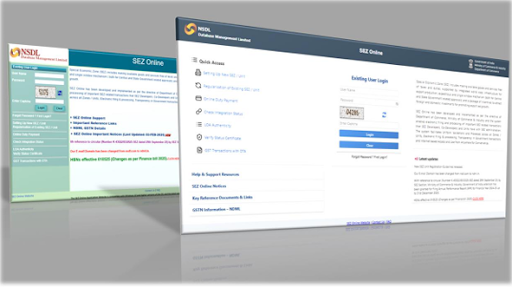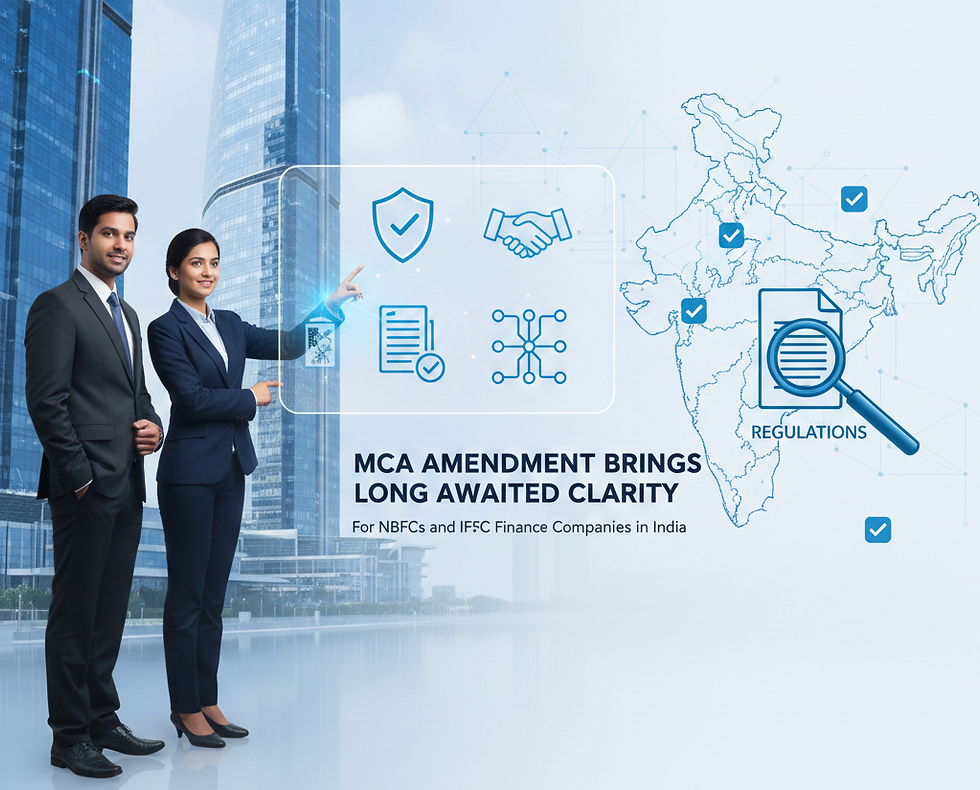🏦 Understanding the Latest Amendments to Foreign Currency Accounts under LRS: What Resident Indians Must Know
- GIFT CFO
- Jul 25
- 4 min read
Updated: Aug 7
🔍 Introduction
On June 23, 2025, the International Financial Services Centres Authority (IFSCA) issued a circular amending directions related to the operation of Foreign Currency Accounts (FCAs) opened by Resident Individuals (RIs) under the Liberalised Remittance Scheme (LRS). These amendments aim to strengthen compliance, transparency, and purpose-alignment of foreign fund usage within India’s IFSC ecosystem, such as the GIFT City.
This blog unpacks the core concepts, rules, and implications of this circular in a simple and engaging manner — ideal for finance professionals, compliance teams, and curious investors alike.

🌍 What is the Liberalised Remittance Scheme (LRS)?
The Liberalised Remittance Scheme (LRS) is a facility offered by the Reserve Bank of India (RBI) allowing resident individuals to remit up to USD 250,000 per financial year for:
Overseas education
Travel and tourism
Maintenance of relatives abroad
Medical treatment
Investment in foreign securities or real estate
Opening and funding of Foreign Currency Accounts (FCAs) in IFSCs
💼 What is a Foreign Currency Account (FCA)?
An FCA is a bank account denominated in a foreign currency (like USD) maintained with an IFSC Banking Unit (IBU) — essentially a bank operating in India's International Financial Services Centres.
Purpose of FCAs:
Facilitate seamless foreign transactions
Enable investment in global products
Avail of financial services within IFSCs
🛠 Recent Amendments: What Has Changed?
The new circular replaces two key clauses to ensure declarations align with LRS usage norms.
🔹 1. Declaration Before Spending from FCA
Old Rule: Not clearly mandated. Amended Rule:
IBUs must obtain a declaration from the resident individual (RI), confirming that:
· The money being spent is for the purpose declared while remitting under LRS, OR
· The money is being used for a purpose permitted under LRS.
✅ Example:
If an individual remits funds for subscribing to a U.S. stock-trading platform in the IFSC, the use must reflect that intention — not diverted, say, for speculative crypto trading unless allowed.
🔹 2. Declaration Before Remitting from FCA
Old Rule: Not explicit. Amended Rule:
IBUs must obtain a declaration before allowing funds to be remitted from the FCA, ensuring:
· The transfer aligns with the originally declared purpose, OR
· It complies with permitted LRS activities.
✅ Example:
Suppose a person wants to use FCA funds to pay for their child’s foreign university fee. If that was the originally declared purpose — it's valid. If not, they must check whether it's an allowable LRS activity and declare accordingly.
📊 Understanding Margin, Compliance, and Risk through a Derivatives Lens
While the document is primarily about FCAs under LRS, it indirectly supports wider activity in India’s derivatives ecosystem. Let’s clarify those complex terms for context.
📈 What are Derivatives?
Derivatives are financial instruments whose value is derived from an underlying asset — such as stocks, indices, interest rates, or currencies.
Types of Derivatives:
Product Type | Description | Example |
Futures | Agreement to buy/sell asset at a future date | Nifty50 Futures |
Options | Right (not obligation) to buy/sell at specific price | USD-INR Options |
Swaps | Exchange of cash flows or liabilities | Interest Rate Swaps |
💰 Margin Requirements & Settlement: Explained Simply
Initial Margin: Upfront amount you deposit when entering a derivatives trade.
E.g., If you’re trading a futures contract worth ₹10 lakh, the exchange may require ₹1 lakh as margin.
Mark-to-Market (MTM): Daily profit/loss settled by adjusting your margin.
Settlement: Final closing of the contract. Can be cash or physical delivery.
🔒 Investor Protections in IFSCs
Though not explicitly addressed in the circular, IFSCs (like India INX) have strict frameworks for:
KYC/AML compliance
Segregation of client funds
Real-time risk monitoring
Transparent settlement protocols
These measures ensure investor funds are used safely and per declared intentions — aligning with the declaration-focused amendments.
🌐 India INX: Connecting Indian Investors to Global Markets
💡 What is India INX?
India INX is India’s first international stock exchange, located at GIFT IFSC, providing:
Global market access (24x6 trading)
Trading in equity, debt, currency, and derivative products
Advanced tech platforms for efficient order execution
🧩 Role of India INX in LRS & FCAs:
Provides investment products that RIs can invest in using their FCAs
Enhances transparency and compliance through integration with IBU protocols
Offers regulated access to global financial instruments
📝 Key Takeaways
🔑 Topic | 📌 Summary |
FCA Rules | Updated to require declaration aligning with original LRS purpose |
IBU Role | Must collect and verify declaration from RIs for every usage or remittance |
LRS Framework | Enables up to USD 250,000 per year for approved foreign investments/services |
Investor Protection | IFSCs offer strict KYC, fund segregation, and real-time risk management |
India INX | Acts as a global gateway for Indian investors under LRS/FCA accounts |
🧭 Final Thoughts
This amendment is a compliance-focused update aimed at ensuring RIs use their FCA funds transparently and for declared or permitted purposes under LRS. While subtle, it reinforces India's ambition to build IFSCs as trustworthy global financial hubs.
Whether you're a seasoned investor, a compliance officer, or a curious newcomer, understanding and following these evolving norms ensures smoother cross-border financial participation.


























































































Comments